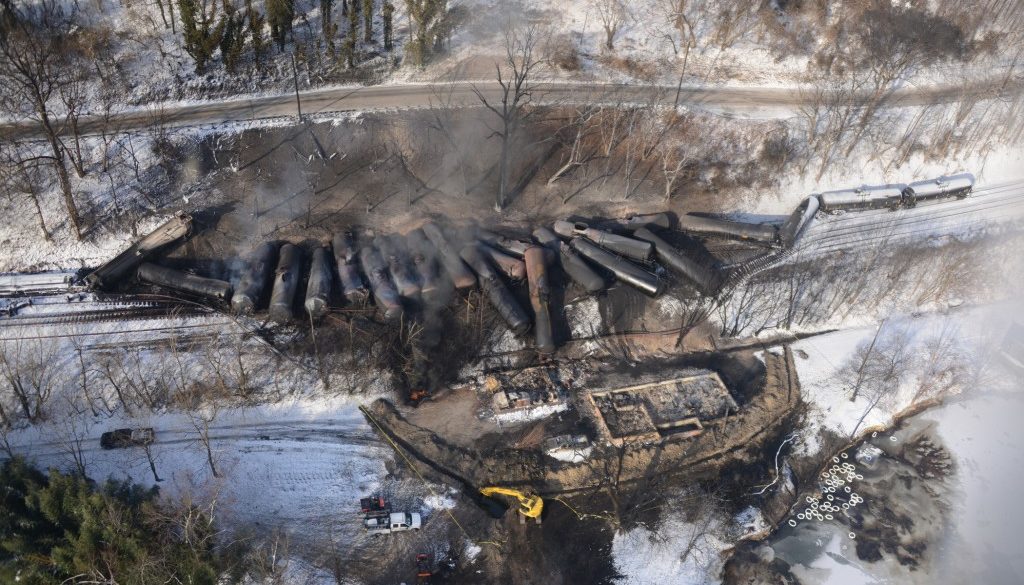Communities Turn the Tide in the Fight to Stop Explosive Oil Trains
By Caeleigh MacNeil, Earthjustice
Transporting crude oil is dirty business. Recently, oil companies on the West Coast have proposed to build offloading facilities on communities’ doorsteps, requiring citizens to fight back against a wealthy and powerful industry. In some places, oil companies insisted that local communities could not require additional safety measures or deny their permits, based on arguments about interstate commerce and federal railroad law. These arguments often left local decision-makers confused about their role and power.
This September, a little-known federal agency called the Surface Transportation Board, which primarily handles conflicts between railroads, confirmed that local officials have the legal authority to review, accept or reject construction of crude-by-rail facilities. Just weeks after this landmark decision, the community of Benicia, California flexed its rights. Oil giant Valero had proposed to build a new facility in this waterfront town; the city council voted to reject the proposal.
“The community of Benicia, in the crosshairs of history, made one of those decisions that will make a difference for the country. They stood up and said the safety of our communities matters,” Yolo County Supervisor Don Saylor told the Sacramento Bee.
“The community of Benicia, in the crosshairs of history, made one of those decisions that will make a difference for the country.”
Another California community soon followed in Benicia’s footsteps. On October 5, the San Luis Obispo County Planning Commission voted to reject Phillips 66’s proposed oil train facility in Nipomo, Calif. This decision came after almost three years of review, with more than 20,000 Californians opposing the project, and more than 45 cities, counties and school boards sending letters urging the planning commission to reject the oil facility. Community members came together to safeguard their homes, and the transportation board ruling helped give them the confidence to stop Phillips 66 from bringing pollution and health problems to their neighborhoods.
Just a day after the San Luis Obispo decision, the Shell Puget Sound Refinery in Anacortes, Washington, announced that it was abandoning its plans to construct a crude-by-rail facility in Skagit County. Originally proposed in 2014, and forced to undertake an environmental and public health review following a legal challenge, the project faced overwhelming community opposition.
Sadly, the fight against crude-by-rail is far from over. In the boom-and-bust world of oil production, transportation of crude by rail skyrocketed in just the last three years (although now numbers have begun to fall off). The dramatic increase of crude oil in tank cars, combined with scarce protective regulations, has led to a rash of rail accidents and explosions. Oil train cars and transfer facilities also release toxic pollutants that threaten the health of nearby communities, and low-income neighborhoods and communities of color are often targeted as locations for crude shipment.
Earthjustice is helping communities in California, New York, Oregon and Washington state fight back against dangerous crude-carrying trains. Just last month, we helped residents of a public housing project in Albany push back against a major crude-by-rail terminal owned by Global Companies. Now, Global is being required to conduct extensive emissions testing and to complete a comprehensive environmental review before continuing operation.
As communities pull together and find their voice, oil companies can no longer do what they want, where they want. The transportation board’s decision confirms that communities have the power to fight back—and win.

